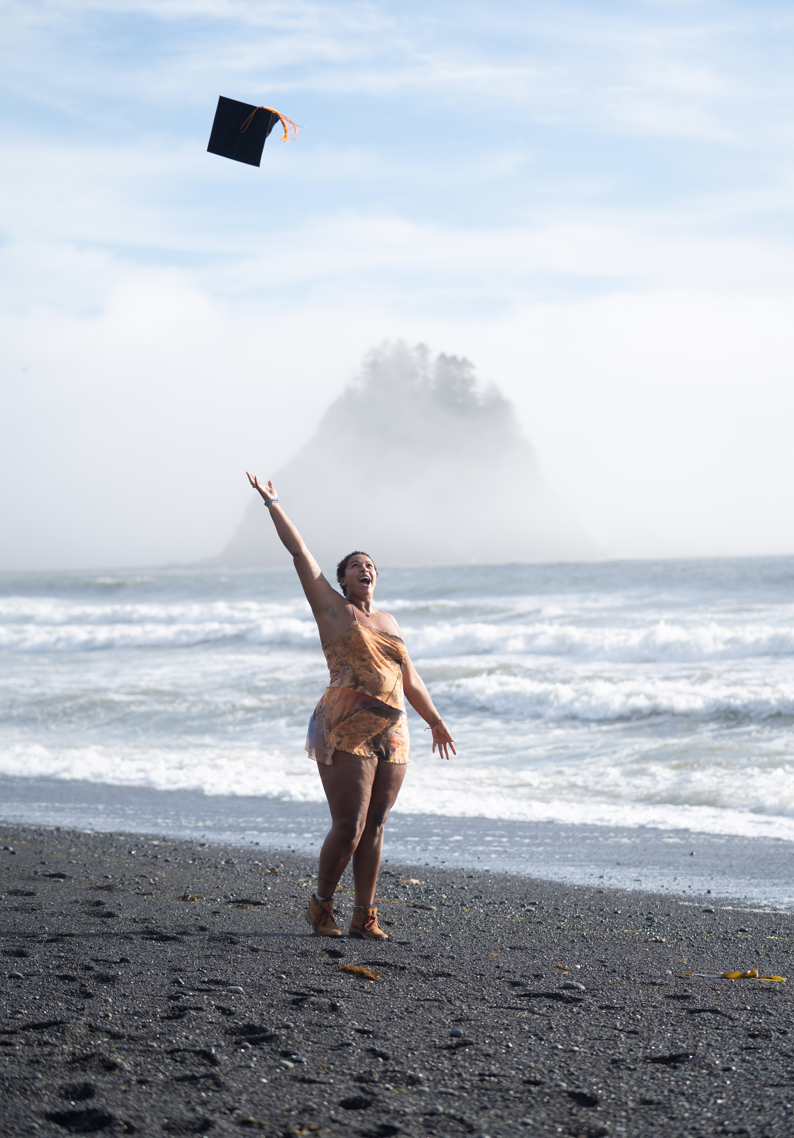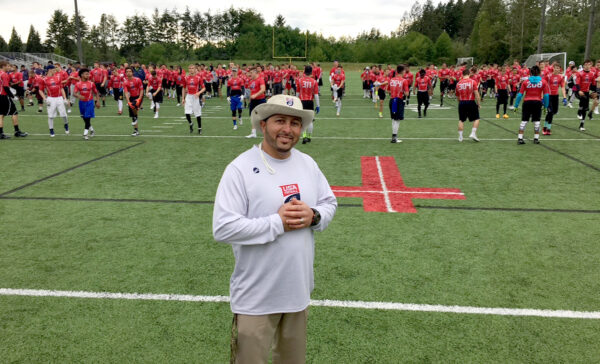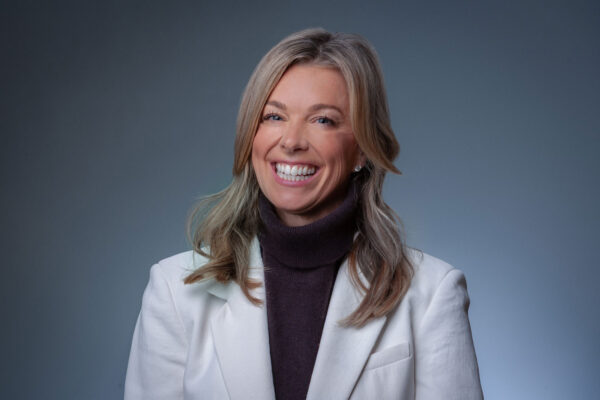Since she can remember, Tay Verville says she has been enamored with revolutions, in particular both the Black Liberation movement and the American Indian movement in the United States. “I have always admired Malcom X, Kwame Ture, Martin Luther King Jr. and Vine Deloria Jr.” she said. “Any activist trying to make a difference in this world resonates in my heart.”
Verville graduated in 2021 from the University of Washington Bothell and earned a degree in two academic disciplines: a major in American Ethnic Studies with a concentration in African American History and Culture, and a major in Society, Ethics & Human Behavior. She also minored in Human Rights and in Diversity Studies.

In her time at the University, Verville created a project called The Black Experience in Education, which consists of a series of interviews that follows the life experiences of Black students dating from the 1940s to present day. She also founded the art-based solidarity collective, What They Forgot to Mention, which fuses art and academia to illustrate the United States from the lens of people of color.
Off campus, she still found time to organize with the Harborview Health for All campaign and serve as a civic education intern for the Washington State Legislature.
For these reasons and more, Verville was named one of the Husky 100. Each year, the UW recognizes 100 undergraduate and graduate students from the Bothell, Seattle and Tacoma campuses who are making the most of their time at the University. The recipients actively connect what happens inside and outside of the classroom, applying what they learn to make a difference on campus and in the community. Verville is one of 12 students from UW Bothell to be recognized in 2021.
Awareness through art
During her second quarter at UW Bothell, Verville took BIS 300 Interdisciplinary Inquiry. That class ignited her passion for social revolutions and activism.
“We studied the Tiananmen Square protests that were student-led demonstrations in Beijing in 1989,” Verville said. “Troops who were armed with assault rifles fired at demonstrators who were trying to block the military’s advance into Tiananmen Square.& Despite the violence directed at them, the protesters just stood holding flowers. I admired the way they held their composure and stood unified together.”
This display of power in unity inspired Verville in the summer of 2020 to create What They Forgot to Mention, a collective of like-minded people who find solidarity through art. “I am a Black, biracial woman in the United States,” she said. “It has been amazing to see the elevation the Black voice has gotten through pressurized advocacy this past year. As we move forward, it is imperative that we bring that same level of dedication to other marginalized communities that need our support, such as the Indigenous peoples.”
To jumpstart the initiative, Verville reached out to a few of her Indigenous and Black friends. Together, they brainstormed ideas about how to bring academia and art together to tell the story of life in the U.S. through the lens of Black and Indigenous people.
“We talked about street performances in Tacoma where we would have murals accompanied by spoken word pieces and about utilizing community spaces to host a gallery and open mic event that concentrates Black and First Nation experiences,” she said. “Ideally, this would allow us to get donations to fund mutual aid projects like King County Equity Now and other local organizations helping to sustain the Black community.”
Due to COVID-19, Verville and the group had to pause their plans for collective gatherings. She does, however, plan to continue developing What They Forgot to Mention in the years to come. “As I move into positions in youth leadership, I absolutely plan to continue this as a youth-led collective,” she said. “But for now, we shifted to be an online support group for people to share their experiences, heal and be in solidarity.”
Activism in academia
Interdisciplinary Inquiry was not the only course at UW Bothell to shape Verville’s future. In fact, she said it was a community psychology course that “transcended” her entire academic career.
One of the group projects in the class focused on identifying stakeholder positions as they relate to segregation in education. The group was asked to look at the treatment of different people within the educational system. Verville was part of that group initially but branched out to create her own project that would more adequately represent the Black voice. “You can’t analyze systemic issues in education without centering the Black students’ narrative in the United States,” she said.
Her project, The Black Experience in Education, involved interviewing current Black students living in the Midwest, former Black students from the 1930s and 1940s who went to school before desegregation, and former Black students who went to school in the Deep South during busing efforts. She also engaged academic professionals, including a Black preschool teacher for kids of color.
Verville said speaking with the teacher was profound. “She works in Alabama at a prestigious preschool that receives federal funding to create a program for less privileged students, but it has resulted in segregation in the building,” she said. “The kids in the federally funded program, who are predominately of color, came second to the kids from the wealthy, predominately white, homes. A white parent even said something along the lines of, ‘My child won’t have to be with all of those poor black children, will they?’”
The project brought to light some other findings. “In comparison to white children at the preschool, the Black children were exponentially more likely to be punished or penalized for something a white child wouldn’t be,” Verville said.
There was also an “echoing sentiment of being the ‘one and only,’” she said. Interviewees reported that they didn’t have many fellow Black peers or educators — and felt like they were alone in their experience. “It’s hard not having that representation,” Verville said. “We are getting an education, but we aren’t seeing ourselves in positions of power.”
Her project will be published in the November issue of the Process Journal, a forum for undergraduates. “I am excited for this research to have a public platform,” she said, “and for the Black experience in education to be shared.”
Standing in solidarity
Verville’s passion for activism extends beyond academia. In fall 2020, she organized with Harborview Health for All, a campaign for a proposition that would ensure the continuation of high-quality health care at King County’s public hospital. As the organizing fellow, she worked closely with the campaign manager and key stakeholders to increase voter contact, promote volunteer engagement and support campaign communications. “I pulled in a lot of nurses, doctors and staff at the hospital who are committed to a Health for All system.” Verville said. “Working together, we got the measure passed!”
The campaign was just the start of her accomplishments in activism. Later in the academic year, she was a civic education intern for the Washington State Legislature and then a senatorial intern. As the former, she did intensive research into how a bill is passed, how the legislature works and how bureaucratic government is structured. “It was amazing,” Verville said. “We got to meet with people like Bob Ferguson, the Washington state attorney general, and others who are on the governor’s board. We were able to pick their brains about what it is like to be in government and how to get into similar positions.”
Verville’s favorite project as a senatorial intern was starting the Women of Color cohort. “The legislative body is predominately white men, and I wanted to create a space for women of color in government to uplift each other,” she said. “We are the most isolated and ostracized people in the United States, and we really need that sense of belonging and community.”
The cohort was focused on sharing experiences. One event was a community luncheon for members and allies. “Sharing our experiences with people who want to support the liberation of those of color was important because they need to hear our experiences,” Verville said. “We felt heard, seen and empowered.”
Coming full circle
Nhi P. Tran, an undergraduate academic adviser at UW Bothell, said, “Tay continues to not be bound by her circumstances and figures out how the impossible can become possible for herself and others. She is truly a beacon of hope and source of inspiration for faculty, staff, students and her community.”
One way she does this now is as an education fellow at a holistic boarding school n Colorado called Eagle Rock School & Professional Development Center. “It is an anti-racist school focused on social justice and reengaging disengaged youth through a social justice framework,” Verville said. “It completely pushes down on the traditional educational model.”
Verville can speak from personal experience because she went there her junior and senior years of high school. “If it weren’t for that school, I would be on a completely different track. I had dropped out of high school my sophomore year and didn’t think I would go back, but they showed me that I am just as intelligent and capable as anyone else,” she said.
“Eagle Rock showed me there were things in the world worth caring about — and I hope to do the same for the students that I will meet in the coming years.”


